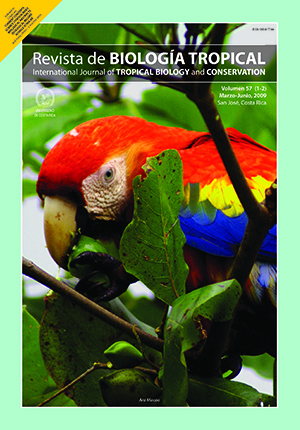Abstract
A survey of the spider community composition and diversity was carried out in grasslands and woods in three localities: Colonia Pellegrini, Paraje Galarza and Estancia Rincón (Iberá province Reserve). Pit fall traps, leaf litter sifting, foliage beating, hand collecting and sweep nets were used. Shannon’s diversity index, evenness, Berger-Parker’s dominance index, β and γ diversity were calculated, and a checklist of spider fauna was compiled. Species richness was estimated by Chao 1, Chao 2, first and second order Jack-knife. A total of 4 138 spiders grouped into 150 species from 33 families of Araneomorphae and two species from two families of Mygalomorphae were collected. Five species are new records for Argentina and eleven for Corrientes prov- ince. Araneidae was the most abundant family (39.8%), followed by Salticidae (10.9%), Anyphaenidae (7.9%), Tetragnathidae (7.4%), and Lycosidae (5.5%). The other families represented less than 5% of the total catch. The web-builder guild had the highest number of specimens and the highest richness index. The abundance, observed richness, Shannon diversity and evenness indexes were highest in Colonia Pellegrini woodland and Paraje Galarza grassland. Alpha diversity represented 89% of the gamma; the remaining 11% corresponded to β diversity. According to the indexes, between 67% and 97% of the existing spider fauna was represented in the collected specimens from Iberá.
This work is licensed under a Creative Commons Attribution 4.0 International License.
Copyright (c) 2009 Revista de Biología Tropical

